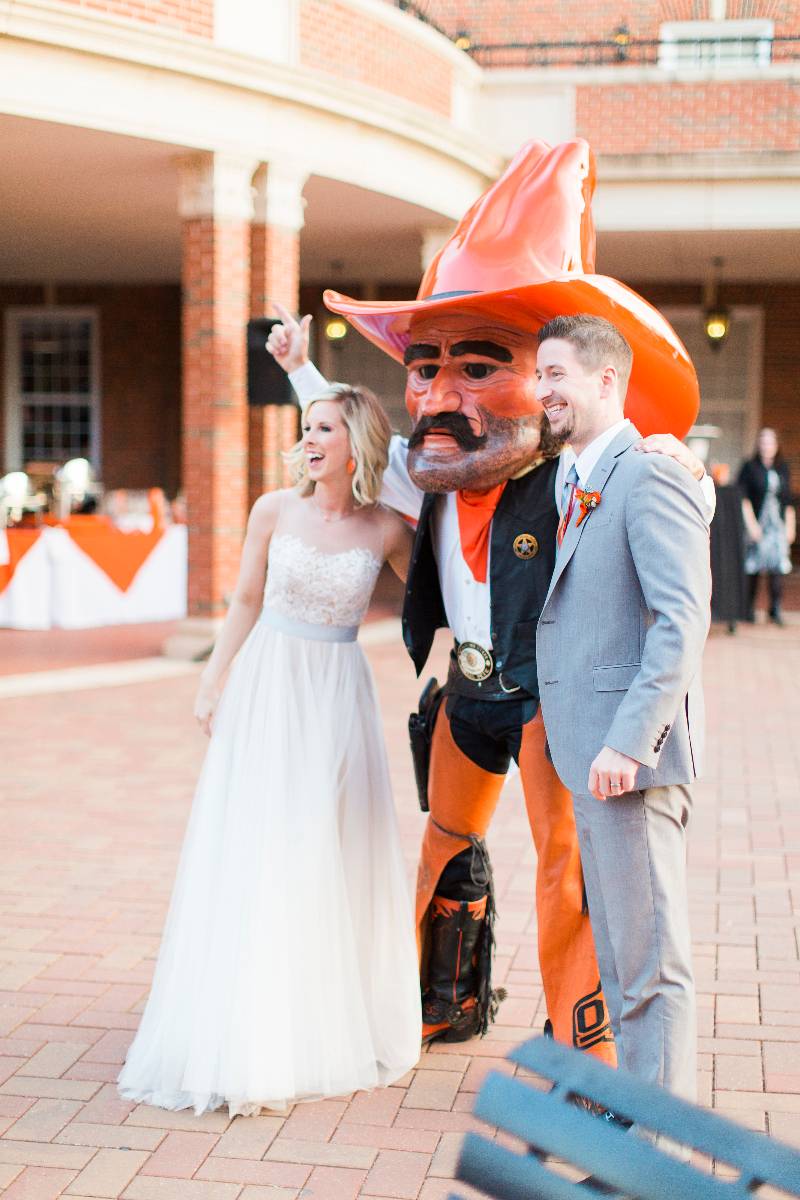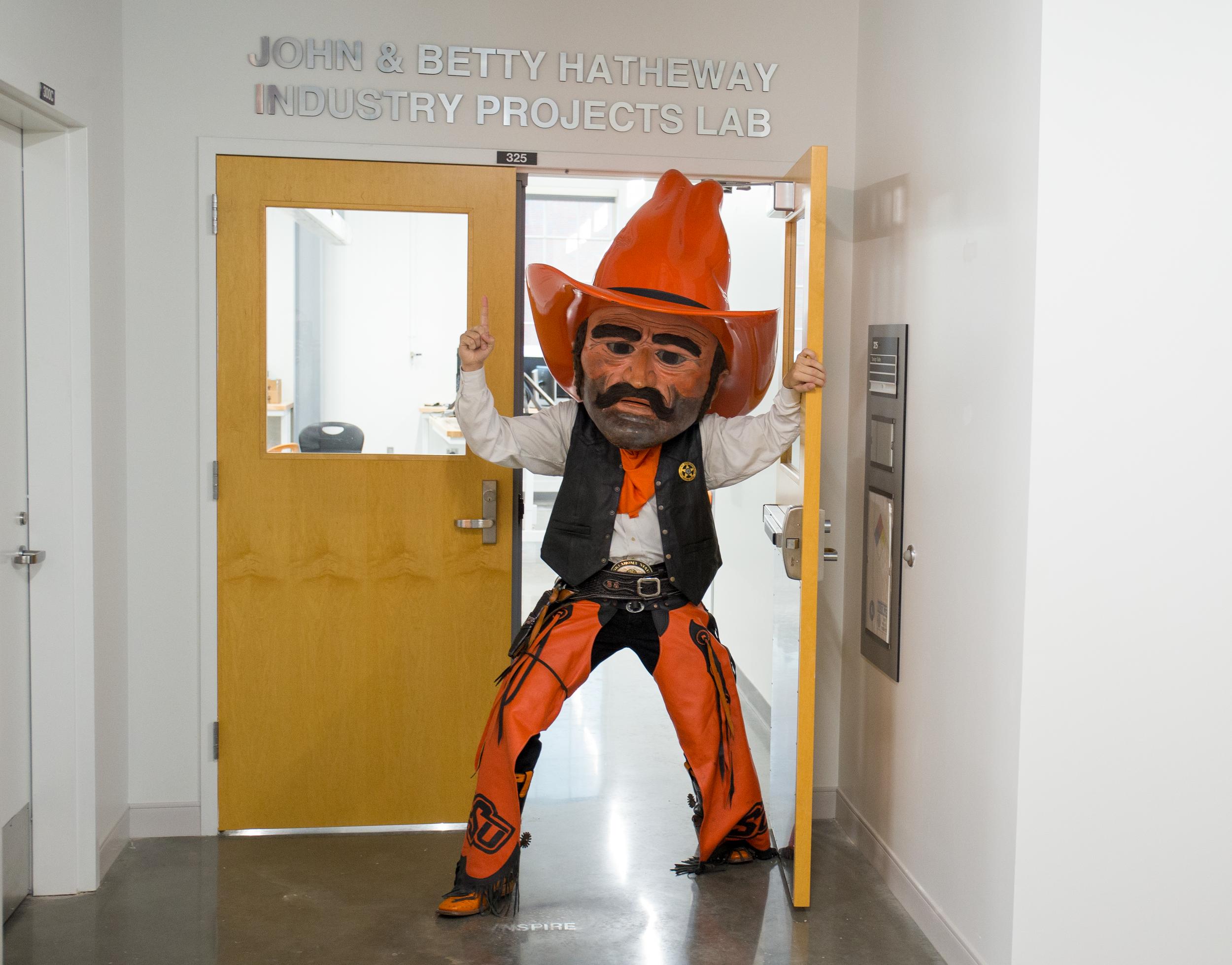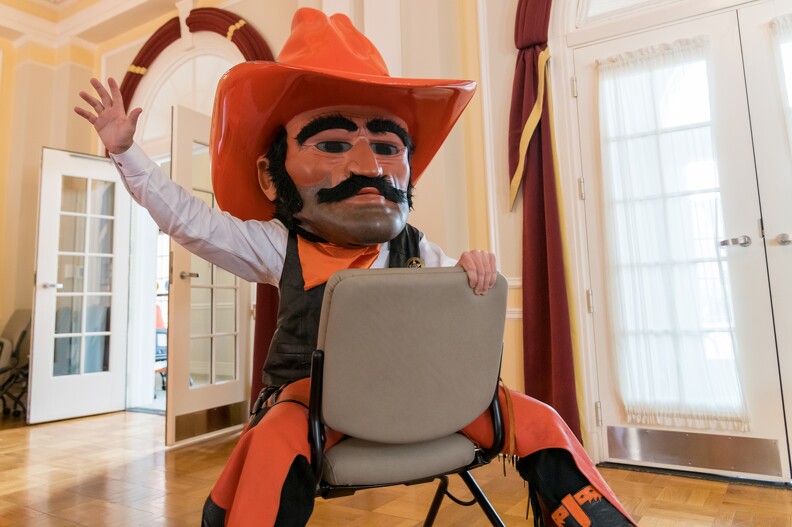18.1 Understanding Special Occasion Speaking
Click below to play an audio file of this section of the chapter sponsored by the Women for OSU Partnering to Impact grant.
“That’s the second best introduction I ever received. The best was when the emcee didn’t arrive and I had to do it myself.” -Westside Toastmasters
Often the speaking opportunities life brings our way have nothing to do with specifically informing or persuading an audience; instead, we are commonly asked to speak during special occasions in our lives. Whether you are standing up to give a speech at an awards ceremony or a toast at a wedding, knowing how to deliver speeches in a variety of different contexts is the nature of special occasion speaking. In this chapter, we are going to explore what special occasion speeches are as well as a number of types of special occasion speeches ranging from humorous to somber.
In broad terms, a special occasion speech is a speech designed to designed to address and engage the context and audience’s emotions on a specific occasion. Like informative or persuasive speeches, special occasion speeches should communicate a clear message, but the manner of speaking used is typically different. The word “special” in the term “special occasion speeches” is somewhat subjective in that while some speaking occasions truly are special occasions (e.g., a toast at a wedding, an acceptance speech at an awards banquet, a eulogy for a loved one), they can also be given at more mundane events, such as the hundreds of public relations speeches that big companies give every day. The goal of a special occasion speech is ultimately to stir an audience’s emotions and make them feel a certain way in response to the situation or occasion.
Of all the types of speeches we are most likely to have to give during our lives, many of them will fall into the special occasion category. These often include speeches that are designed to inspire or motivate an audience to do something. These are, however, different from a traditional persuasive speech. Let’s say you’re the coach of your child’s Little League team or a project leader at your work. In both cases you might find yourself delivering a speech to motivate and inspire your teams to do their best. You can imagine how giving a motivational speech like that would be different from a traditional persuasive speech, focusing on why a group of 50-somethings should change their investment strategy or a group of your peers to vote for a certain candidate for Student Senate.
To help us think through how to be effective in delivering special occasion speeches, let’s look at four key ingredients: preparation, adaptation to the occasion, adaptation to the audience, and mindfulness about the time.
Be Prepared
First, and foremost, the biggest mistake you can make when standing to deliver a special occasion speech is to underprepare or simply not prepare at all. We’ve stressed the need for preparation throughout this text, so just because you’re giving a wedding toast or a eulogy doesn’t mean you shouldn’t think through the speech before you stand up and speak out. If the situation is impromptu, even jotting some basic notes on a napkin is better than not having any plan for what you are going to say.
Adapt to the Occasion
Not all content is appropriate for all occasions. If you are asked to deliver a speech commemorating the first anniversary of a school shooting, then obviously using humor and telling jokes wouldn’t be appropriate. But some decisions about adapting to the occasion are less obvious. Consider the following examples:
- You are the maid of honor giving a toast at the wedding of your younger sister.
- You are receiving a Most Valuable Player award in your favorite sport.
- You are a sales representative speaking to a group of clients after a mistake has been discovered.
- You are a cancer survivor speaking at a high school student assembly.
- You are giving an after-dinner speech to the members of your fraternity.
How might you adapt your message and speaking style to successfully convey your message to these various audiences?
Remember that being a competent speaker is about being both personally effective and socially appropriate. Different occasions will call for different levels of social appropriateness. One of the biggest mistakes entertaining speakers can make is to deliver one generic speech to different groups without adapting the speech to the specific occasion. In fact, professional speakers always make sure that their speeches are tailored for different occasions by getting information about the occasion from their hosts. When we tailor speeches for special occasions, people are more likely to remember those speeches than if we give a generic speech.
Adapt to Your Audience
Once again, we cannot stress the importance of audience adaptation enough in this text. Different audiences will respond differently to speech material, so the more you know about your audience, the more likely you’ll succeed in your speech. One of our coauthors was once at a conference for teachers of public speaking. The keynote speaker stood and delivered a speech on the importance of public speaking. While the speaker was good and funny, the speech really fell flat. The keynote speaker basically told the public speaking teachers that they should take public speaking courses because public speaking is important. Right speech, wrong audience!
Be Mindful of the Time
The last major consideration for delivering special occasion speeches successfully is to be mindful of your time. Different speech situations have their own conventions and rules with regard to time. Acceptance speeches and toasts, for example, should be relatively short (typically under two minutes). A speech of introduction should be extremely brief—just long enough to tell the audience what they need to know about the person being introduced in a style that prepares them to appreciate that person’s remarks. In contrast, commencement speeches, eulogies, and speeches to commemorate events can run ten to twenty minutes in length, depending on the context.
It’s also important to recognize that audiences on different occasions will expect speeches of various lengths. For example, although it’s true that graduation commencement speakers generally speak for ten to twenty minutes, the closer that speaker heads toward twenty minutes the more fidgety the audience becomes. To hold the audience’s attention, a commencement speaker would do well to make the closing minutes of the speech the most engaging and inspiring portion of the speech. If you’re not sure about the expected time frame for a speech, ask the person who has invited you to speak.

The text message came in as a complete surprise to Pistol Pete: “Hey Pete, our best man has lost his voice! We’d be honored if you could step in and give a toast at our wedding tonight.”
Pete stared at his phone in disbelief. It was his good friend’s wedding day, a momentous occasion, and he was being asked to give an impromptu speech with no preparation. The initial wave of panic washed over him, but as he took a deep breath, he realized that he needed to harness that cowboy spirit and take on the challenge.
Firstly, Pete focused on calming his nerves. He reminded himself that he wasn’t there to impress anyone but to honor his friend’s special day. This realization helped put things into perspective, allowing him to approach the task with a sense of calm.
Next, he brainstormed some key points he wanted to include in his toast. He thought about his friend, their shared memories, the friend’s qualities, and the love between the couple. He noted these points down, making sure to include anecdotes and moments that reflected these aspects.
Understanding the importance of brevity in toasts, he decided to structure his speech simply: an introduction where he would express his honor at being asked to toast, a body where he’d share a short anecdote about his friend and the couple, and a conclusion that would contain his well-wishes and a toast to their future.
While content was key, Pete also knew that delivery mattered. He practiced his speech a few times, focusing on speaking clearly, maintaining a steady pace, and ensuring his voice conveyed the warmth and sincerity of his words. He made mental notes to make eye contact with his friend and the spouse, making the speech more personal and engaging.
Even though he was stepping in at the last minute, Pete was determined to add a touch of personalization to his toast. He decided to weave in a few friendly jokes and a quote about love that he knew would resonate with the couple.
As the wedding hour approached, Pete reminded himself that the most important thing was to speak from the heart. After all, he wasn’t just Pistol Pete, the OSU mascot, but also a friend who was truly happy for the couple.
As he rose to his feet when the moment came, he took one last deep breath, reminded himself of the cowboy spirit within him, and delivered a heartfelt, charming toast that not only honored his friend’s most important day but also brought smiles, laughter, and even a few joyful tears to the wedding party.
How would you respond if you were asked at the last minute to give a wedding toast?
*Pistol Pete scenarios are all based on hypothetical events and were written with the use of Chatgpt and careful editing by Speech Communication faculty.
This resource is available at no cost at https://open.library.okstate.edu/speech2713/
a speech designed to address and engage the context and audience’s emotions on a specific occasion



